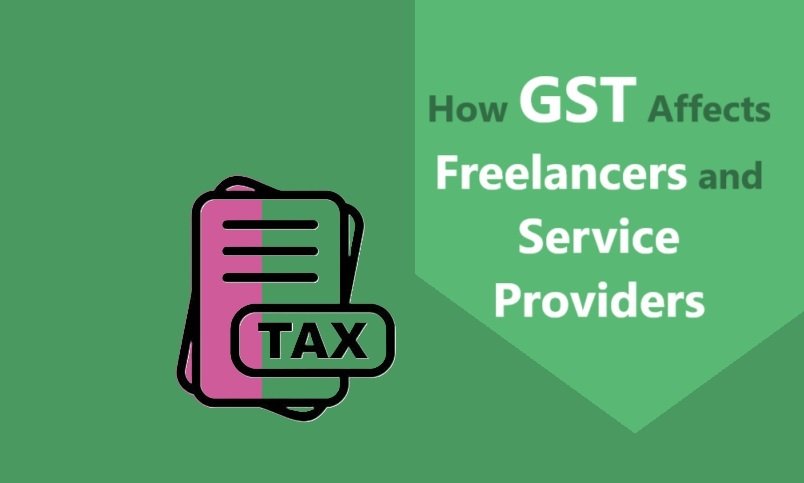How GST Affects Freelancers and Service Providers
Introduction
Goods and Services Tax (GST) has significantly impacted freelancers and service providers in India by bringing them under a structured tax regime. While it streamlines taxation, it also introduces compliance obligations that freelancers must follow to avoid penalties. Understanding how GST applies to freelancers helps ensure smooth operations and tax efficiency.
1. GST Registration for Freelancers
Freelancers and service providers must register for GST if:
- Their annual turnover exceeds ₹20 lakh (₹10 lakh for special category states).
- They provide services to clients in other states (inter-state supply).
- They offer services to international clients and claim export benefits.
How to Register for GST
- Visit the GST portal (www.gst.gov.in).
- Fill in details such as PAN, business address, and bank account details.
- Submit necessary documents (Aadhaar, PAN, and proof of business).
- Receive GSTIN after verification.
2. Applicability of GST on Freelance Income
Freelancers providing services must charge GST at 18% under the category of “Professional and Business Services.” This applies to:
- IT professionals and software developers.
- Digital marketers and content creators.
- Consultants, trainers, and designers.
Exemptions and Special Cases
- Freelancers earning below ₹20 lakh do not need to register or charge GST.
- Export of services is considered “zero-rated,” meaning GST is not levied, but registration is required to claim Input Tax Credit (ITC).
3. GST on Domestic vs. International Clients
Domestic Clients
- GST must be charged on invoices raised to Indian clients.
- The collected GST must be remitted to the government.
International Clients
- Exported services are exempt from GST but require documentation like LUT (Letter of Undertaking) to avoid paying GST upfront.
- If LUT is not furnished, freelancers must pay GST and later claim a refund.
4. Input Tax Credit (ITC) for Freelancers
Freelancers can claim ITC on expenses such as:
- Office rent and utilities.
- Software subscriptions and tools.
- Business travel expenses.
- Internet and phone bills.
How to Claim ITC
- Maintain proper invoices and receipts.
- File GST returns (GSTR-3B and GSTR-1) on time.
- Ensure vendor invoices reflect GST details correctly.
5. Filing GST Returns for Freelancers
Freelancers registered under GST must file regular returns:
- GSTR-1 (Monthly/Quarterly) – Details of outward supplies (invoices issued).
- GSTR-3B (Monthly) – Summary of sales, ITC, and tax payable.
- GSTR-9 (Annually) – Summary return for the financial year.
Tips to Avoid Non-Compliance
- Maintain proper records of all invoices.
- Reconcile income and GST filings regularly.
- Use accounting software for accurate tax calculations.
6. GST Penalties for Freelancers
Non-compliance with GST regulations may lead to:
- Late fee of ₹50 per day for delayed return filing.
- Interest at 18% per annum on unpaid GST.
- Penalties for incorrect tax filings or non-payment.
How to Avoid Penalties
- Set reminders for GST return filing dates.
- Keep updated with GST law amendments.
- Consult a tax expert for compliance guidance.
Conclusion
GST has brought clarity and formalization to taxation for freelancers and service providers. Understanding GST rules, proper invoicing, claiming ITC, and timely return filing can help freelancers stay compliant and avoid penalties. Seeking expert advice and using tax automation tools can further simplify GST obligations.








Pingback: Goods and Services Tax (GST): A Comprehensive Guide - Bharat Articles